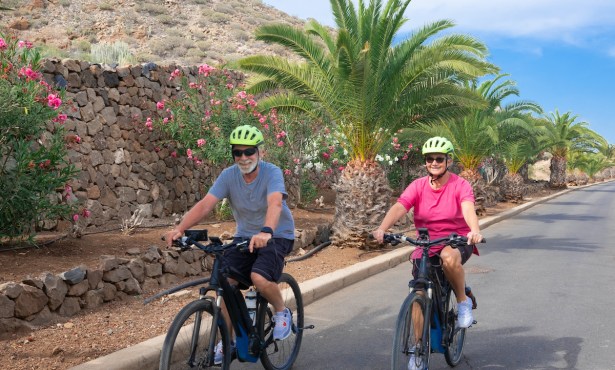Connect, Discuss, and Explore at Vistas Lifelong Learning
Seniors Stay Smart and Social Thanks to This Volunteer-Run Nonprofit
By Leslie Dinaberg

‘Life is a huge playground in which the active brain can engage and be altered by every experience.’
—Dr. Marianne J. Legato
‘The brain can be continuously and consistently enriched throughout your life no matter your age or access to resources.’
—Dr. Sanjay Gupta, Keep Sharp: Build a Better Brain at Any Age
Learning new things and maintaining a vibrant social life are two of the key pillars that experts say will keep our brains sharp and healthy. This is exactly what the nonprofit Vistas Lifelong Learning (vistaslifelonglearning.org) offers to the community.
This volunteer-run organization, which started in 1999, is dedicated to keeping aging brains nimble with ongoing educational programs on a wide variety of topics. Recent courses included “Foods That Changed the World” (exploring foods that have changed the world in profound and delicious social, political, and economic ways); “Unpacking the Dementia Epidemic” (current thinking about the causes of dementias, dementia management, and how to stay on top of new developments); and “Politics and Religion in Verdi’s Operas” (with audio and video extracts from modern performances of the operas).
The depth and variety of the programming is impressive, but the social component of Vistas is equally important to its success. “I think of all the connections that people find through Vistas,” said President Jim Hemmer. “There are two book clubs; there’s a short story class; there are memoir writing classes. And in our in-person programs — which moved to Zoom during the pandemic and will resume in the fall — there’s always a 20-minute coffee break in the middle so people can socialize and see old friends and meet other similarly situated people.”
For Hemmer, who retired from a career as an attorney in Chicago and moved to Santa Barbara with his wife, Francine, in January 2017, becoming part of Vistas has been a great way to engage his brain and find a community. Though it’s not a requirement, many of the Vistas presenters are members as well.
A longtime history buff, Hemmer found his way to the organization through a presentation on the Silk Road that he made to a luncheon group called The Cosmopolitan Club (sbcosmo.com). A Vistas member suggested he present to that group, and the response was so positive that Hemmer ended up teaching three different courses on the journey of the historical Silk Roads through China’s current efforts to reinvigorate them today.
“Vistas really attempts to satisfy this desire to learn things, and being a presenter is a wonderful way of doing that,” said Hemmer. “Taking other people’s classes is also great. I find that because I’m busy preparing presentations, I don’t have time to take all the classes I’d like to. I’ve been very busy during the pandemic, and it’s just great.”
Vistas is a small group, explained Hemmer, fluctuating between 300-400 members, and is not affiliated with any college or other institution. Programs are open to the public for a small fee, and the fees are less for members. (Annual membership fees are $40 per person for email-only communications and $50 for snail mail, with individual classes averaging $9 per session for members and $14 for non-members.)
“It’s a really varied and interesting group of people,” Hemmer says. The mostly retired members come from very diverse careers, ranging from former judges, teachers, and docents to social workers, librarians, and secretaries, just to name a few.
Upcoming programs in the fall include a reprise of the Silk Road series; the short history of cryptography; the writer James Baldwin; climate change and the impact on the Great American Waterways; criminal procedure; economic issues; and the social safety net in the U.S., with additional courses and details still being finalized.
“We have a very, very wide palette. There’s somebody for everybody,” said Hemmer. “It’s a wide variety of programs on science, history, current events, music and fine arts, and so on.”
Research suggests that humans learn better in social environments. “The brain is triggered more through discussion and questions than from solitary activities such as independent reading,” said Hemmer. “So it turns out that Vistas’ cooperative spirit that we’re all in it together and we get our ideas from other members is particularly beneficial in the case of seniors.”




You must be logged in to post a comment.